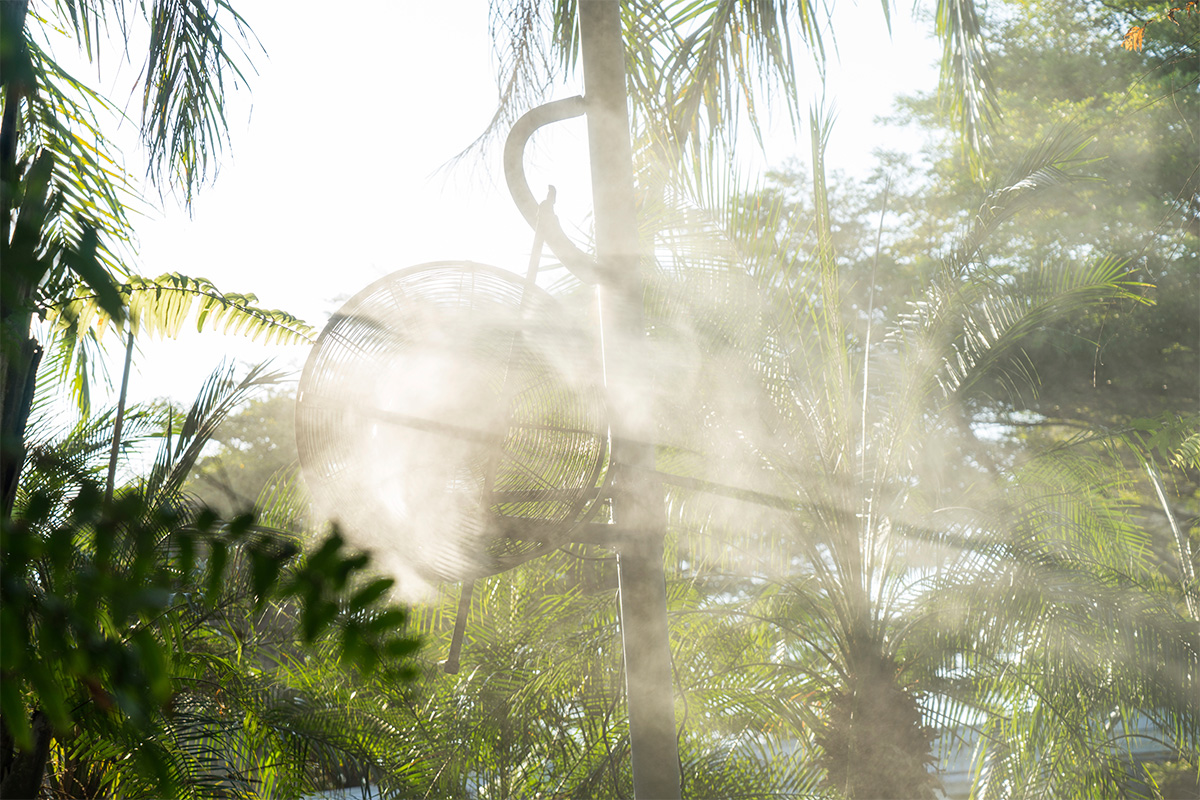Wednesday, May 29th, 2019

The energy saving potential of atomizing humidifiers with its small horsepower pump unit is well documented but the additional free cooling that occurs during evaporation is often overlooked.
The amount of heat that one pound of water will absorb when changing states from a liquid to a vapor is called its latent heat. This is about 970 BTU/LB at atmospheric pressure with an initial water temperature of 212 deg F. To raise the temperature of water 1 deg F, it takes 1 BTU/LB, known as its specific heat. For example, if you have room temperature water at 70F, it will take 142 BTU’s (212F-70F) plus 970 BTU’s for a total of 1,112 BTU’s to fully evaporate one pound of water by atomizing with a fog system. As you can see, most of the energy is used to change states from a liquid to a vapor and the initial water temperature has minimal effect on the overall cooling.
The evaporative cooling that occurs while fogging inside of an air handling unit can often be beneficial as the free cooling reduces the amount of cold outside air being brought in from the air side economizer during the heating season, which in turn reduces the humidifier load and water usage. The fog system can also be used in the cooling season as a direct evaporative cooler which modulates to stay under the maximum allowable relative humidity in the building.
When fogging directly in the space for manufacturing facilities, the benefit of evaporative cooling is even greater. With many manufacturers having high internal heat loads, which in some cases forces them to cool year-round, the amount of free cooling from the fog system adds up to a significant amount of energy savings. For example, a building that uses a 1,000 LB/HR fog system that operates 3,000 hours per year would receive over 3.3 billion BTU’s of free cooling! For a facility with a utility rate of $0.15/kWh, this would save over $30,000! This is another reason why fogging is commonly used in manufacturing buildings and why steam is not a practical option when humidifying large open spaces.
Email us at [email protected] or speak directly with an expert by calling 803.220.0101.